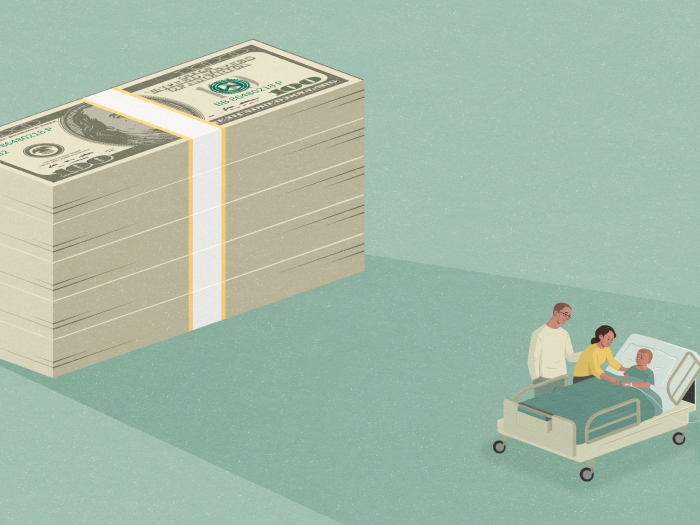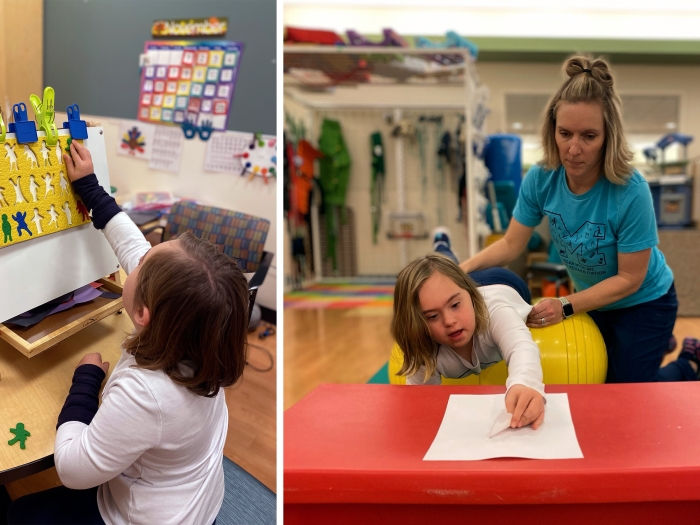Pediatric hospitalizations for chronically ill children with kidney disease were associated with longer hospital stays, higher costs and a higher risk of mortality compared to other chronic illnesses
10:00 AM
Author |

Chronically ill children with kidney disease may spend more time in the hospital, incur larger health care costs and have a higher risk of death compared to pediatric patients hospitalized for other chronic conditions, a new study suggests.
And one of the biggest drivers of these outcomes, researchers found, was the level of medical complexity the young patients faced. Many children with chronic kidney disease also have multiple other chronic health conditions that adversely impact outcomes, including cardiovascular disease, hypertension, diabetes and difficulties in growth.
LISTEN UP: Add the new Michigan Medicine News Break to your Alexa-enabled device, or subscribe to our daily updates on iTunes, Google Play and Stitcher.
"Chronic kidney disease is a lifelong health issue that has an outsized burden on children's lives," says lead author Zubin Modi, M.D., pediatric nephrologist at Michigan Medicine C.S. Mott Children's Hospital and researcher with at the Susan B. Meister Child Health Evaluation and Research Center (CHEAR.)
"We wanted to improve our knowledge of this high risk population in order to better support the needs of chronically ill children with kidney disease. Our findings suggest that these patients have very complex health needs, and we need to determine more effective ways to provide them with the care they need before, during and after hospitalization."
Chronic kidney disease includes long term abnormalities of kidney structure or function that may progress to end-stage kidney disease requiring dialysis or a transplant. Children with the condition are also at risk for acute deteriorations in health secondary to infection, dehydration and side effects associated with medications.
Researchers analyzed national data during 2006, 2009, 2012, and 2016. Of the 6.5 million national pediatric hospital discharges, nearly 4% involved children with chronic kidney disease, according to the findings published in the American Journal of Kidney Diseases.
Our findings suggest that these patients have very complex health needs, and we need to determine more effective ways to provide them with the care they need before, during and after hospitalization.Zubin Modi, M.D.
Children with chronic kidney disease spent about 30% longer in the hospital (an average of 2.8 days compared to 1.8 days for those without a chronic kidney disease) with nearly 60% more in hospital expenses ($8,755 per hospitalization compared to $5,016.)
Children with chronic kidney disease were also 50% more likely to die during hospitalization.
"Data on in-hospital mortality for children with chronic illnesses is lacking, but we know that hospitalizations with a chronic kidney disease diagnosis have a higher mortality than those with other chronic condition diagnoses with the exception of heart failure," Modi says.
"The fact that these children are potentially at higher risk of death while hospitalized should prompt providers to closely evaluate management strategies."
MORE FROM THE LAB: Subscribe to our weekly newsletter
That may mean bringing nephrologists in earlier if they are not already involved in patients' care, making sure to avoid medications that could make kidney function worse as well as other steps that will improve care for these patients, Modi notes.
The high health care expenses for hospitalized pediatric patients with end-stage kidney disease, including dialysis, transplantation, and associated complications may be comparable to hospitalized heart failure patients, authors say.
Kidney disease may be associated with more medical complexities, authors say. The causes of chronic kidney disease in children include genetic disorders, congenital anomalies that may be part of a multi-organ system syndrome and systemic inflammatory disorders. A recent study from the UK reported that adult kidney disease patients also have a greater degree of medical complexity than patients seen by any other specialty.
"Chronic kidney disease can be a devastating illness with many long-term consequences," Modi says. "Some features of chronic kidney disease that start during childhood will have a significant impact on patients' lives through adulthood.
"We need further studies to better understand the health care needs and delivery of care to hospitalized children with chronic kidney disease in order to optimize health outcomes."

Explore a variety of healthcare news & stories by visiting the Health Lab home page for more articles.

Department of Communication at Michigan Medicine
Want top health & research news weekly? Sign up for Health Lab’s newsletters today!





